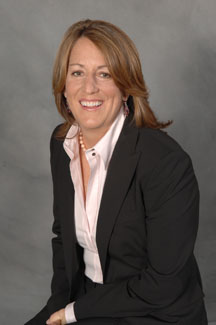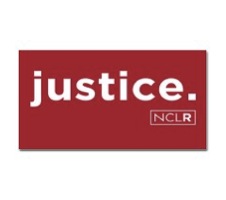Out for Justice: February 2011
Standing Up for Lesbian Teens in Minnesota
Important Federal Tax Changes for Same-Sex Couples This Year
Marriage Equality is Safe in Washington D.C.
NCLR Analysis of CA Supreme Court Decision in the Proposition 8 Federal Case
NCLR Attorney Nominated for a GLAAD Media Award
Innovative Spanish-Language Radio Soap Addresses LGBTQ Acceptance and Equality in Latino Households
Come Celebrate With Us at NCLR’s 34th Anniversary Celebration
Join Us at Dinah Shore in April
NCLR Launches Photo Campaign to Reflect Our Community
Support Justice and Equality in 2011
From the Desk of Kate Kendell, Esq.
The year has just begun and history has already been made for lesbian, gay, bisexual, and transgender equality, setting a high bar for the rest of the year.
Just a few weeks ago, we stood with our clients—high school seniors Desiree “Dez” Shelton and Sarah Lindstrom, who are an out lesbian couple—as they challenged their Minnesota school district so they could walk together as part of the royal court of their school’s winter formal.
You may have heard their story, which made national headlines. Dez and Sarah became role models not only for other LGBTQ youth, but for anyone who wants to right an injustice.
Dez and Sarah’s classmates had selected them to take part in the annual “Snow Days” royalty court at Champlin Park High School, which is in the Anoka-Hennepin School District. But school officials told the couple they would not be allowed to walk together, because seeing a visible same-sex couple might make some students and parents “uncomfortable.”
With the help of NCLR, the Southern Poverty Law Center, and the law firm Faegre & Benson, Dez and Sarah pushed back with a lawsuit filed in federal court. The next day, the school district relented, agreeing to allow any same-sex couple to walk together, and opened the ongoing dialogue for inclusivity.
Two days later, the couple proudly walked in the procession—holding hands, wearing matching tuxes with pink ties, and huge smiles stretched across their faces—as their classmates cheered them wildly and waved homemade signs that read, “it’s okay to be gay” and “together we stand.” The girls wrote a chapter in LGBTQ history by being true to themselves, and in the process paved the way for LGBTQ and allied students to stand proud.
We continue to see progress like this across the country. Last month, our own Roberta Achtenberg, who was NCLR’s executive director from 1983 to 1990, made history herself when President Barack Obama appointed her to the United States Commission on Civil Rights.
She’ll be the first openly LGBTQ person appointed to the Commission, and, more importantly, her appointment assures that a woman of remarkable intelligence, with a broad commitment to justice and equality and a life-long legacy of public service will be there to give voice and representation to those who are denied opportunity, fairness, and equality under the law.
Not bad for 52 days. And those are just two of the events we’ve been privileged to be a part of. Read on for more details on the exhilarating work you support every day. Nothing we do would be possible without you. I can’t wait to see what happens next!
In solidarity,
Standing Up for Lesbian Teens in Minnesota
By Ilona Turner, Esq.
NCLR Staff Attorney
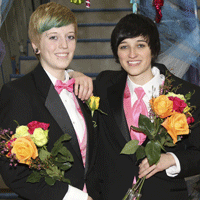
Desiree “Dez” Shelton and Sarah Lindstrom are seniors at Champlin Park High School in the Anoka-Hennepin School District, north of Minneapolis. They’re a couple, and both are out at school. They were both elected by the senior class to the royalty court for their school’s “Snow Days” winter formal dance. The members of the court are traditionally presented to the student body in pairs at an assembly, and Dez and Sarah planned to walk together, as a couple.
A week before the assembly, school officials told Dez and Sarah that they would not be allowed to walk together, because seeing a same-sex couple might make some people “uncomfortable.” When the girls pushed back, the school first decided to cancel the entire procession, and then decided to change the traditional format of the assembly to require each student on the court to walk alone.
It could not have been a more clear-cut case of discrimination: changing an entire event just to avoid letting a same-sex couple participate. And Dez and Sarah refused to let the school get away with it. They were honored to have been elected and excited about walking in the procession together. They were also hurt by the fact that their school wouldn’t let them participate like every other couple on the royalty court has always been able to do.
So on Thursday afternoon, they got in touch with NCLR and our colleagues at the Southern Poverty Law Center (SPLC) to talk through their options. We agreed to help them, and we spent that night drafting a letter to the school district (plan A), as well as putting together legal papers in the event that we had to take the school district to court to seek an emergency injunction (plan B). Friday morning, NCLR and SPLC, along with the law firm of Faegre & Benson LLP, sent a letter to the school district, arguing that the district’s actions were illegal under the First Amendment, the Equal Protection Clause, and the Minnesota Human Rights Act, which prohibits discrimination based on sexual orientation. The district refused to back down, so Friday afternoon we filed a lawsuit in federal court asking for an injunction ordering the school to allow the girls to participate as a couple in the ceremony on Monday.
Fortunately, the judge stepped in right away to help resolve the situation. She scheduled a mediation for Saturday morning, and it was a success! The district agreed to allow Dez and Sarah—and any other same-sex couple—to walk together in the procession. School officials also agreed that Dez and Sarah’s case had provided an “opportunity for ongoing conversation” about how to make school communities inclusive and respectful of everybody, including LGBTQ students.
Finally, on Monday afternoon, January 31, 2011, Dez and Sarah walked together in the procession. They were absolutely thrilled with the result and with the supportive response of their fellow students. And we were thrilled that we could help them have their moment to celebrate their relationship in front of the entire school. They earned it.
Read Desiree Shelton’s guest blog post.
Important Federal Tax Changes for Same-Sex Couples This Year
As we highlighted in our last installment of On The Docket, in May 2010, the Internal Revenue Service announced major changes to how it treats the tax returns of Registered Domestic Partners and married same-sex couples, including changes to the rules regarding community property.
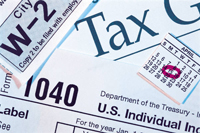
In early January, a panel of experts—Pat Cain, Deb Kinney, Chris Kollaja, and Karen Stogdill—helped an audience of lesbian, gay, bisexual, and transgender people in San Francisco understand these complex issues. No need to worry as April 15th nears, however, because we’re providing you with video of their remarks and their presentation slides to help you prepare for filling out your own Form 1040.
If you would like additional details on the IRS announcement about changes to the law regarding community property, you can find more at Karen Stogdill’s website.
Marriage Equality is Safe in Washington D.C.
By Maya Rupert, Esq.
NCLR Federal Policy Attorney
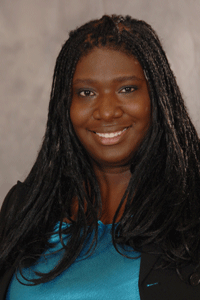
The Religious Freedom and Civil Marriage Equality Act, which became law on March 3, 2010, gave same-sex couples the same freedom to marry as other residents of D.C. In an attempt to nullify the law, anti-marriage activists proposed a ballot initiative seeking to nullify the law. Whether such a ballot initiative could be certified was the issue before the court of appeals.
In a broad sense, this is similar to Hollingsworth v. Perry—the federal challenge to the Proposition 8 ballot measure that stripped the freedom to marry from same-sex couples in California—currently being considered by the Ninth Circuit Court of Appeals. Both cases question whether a majority should ever be allowed to vote on the fundamental rights of a minority group. Allowing such an outcome would be an affront to any notion of fairness within a constitutional democracy, which requires that all citizens must have the same basic rights and protections.
Minority rights are not a kindness bestowed by a benevolent majority. They must be safeguarded by constitutional guarantees and protected even when a majority would rather reserve basic freedoms only for itself. That is the basic principle that underlies our constitution’s guarantee of equal protection and our very notion of justice. It is the principle that underlies the civil rights struggles that have forced this nation to live up to its loftiest ideals, and this Supreme Court ruling places it on the right side of this issue.
NCLR Analysis of CA Supreme Court Decision in the Proposition 8 Federal Case
By Chris Stoll, Esq.
NCLR Senior Staff Attorney
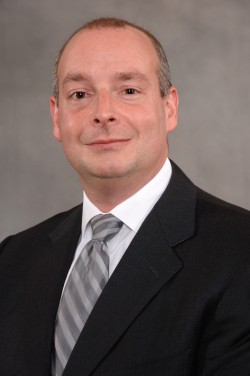
In the context of this case, Hollingsworth v. Perry, the question is whether the proponents of Prop 8 can force an appeal of the federal district court decision holding that Prop 8 is unconstitutional. In the February 16th order, the California Supreme Court did not answer that question, but agreed to answer it after an expedited briefing and argument schedule, with oral argument to come as soon as September of 2011.
As we see it, the California Supreme Court should have no trouble deciding that the supporters of Proposition 8 do not have the right to force an appeal of Judge Walker’s ruling. The California Constitution vests the power to decide how to handle lawsuits involving the constitutionality of ballot initiatives squarely in the hands of the Attorney General and the Governor. That includes the authority to decide whether or not to appeal a court ruling invalidating the initiative.
This is not a new issue. In fact, in several well-known cases, California’s elected officials have refused to defend voter-enacted initiatives on appeal. In 1967, the California Attorney General refused to defend a voter-approved ballot initiative that would have amended the California Constitution to allow real estate owners to discriminate on the basis of race when renting their property. The California Attorney General not only declined to defend that shameful amendment in court, he actually asked the United States Supreme Court to strike it down.
Similarly, in 1999, the Governor refused to appeal a ruling by the U.S. District Court striking down Proposition 187, which would have required the State to withhold health care, public education, and other critical state services to undocumented immigrants.
In these cases, California officials were doing what the voters elected them to do—deciding whether these laws could and should continue to be defended on appeal after courts decided that they were unconstitutional.
Read more about Hollingsworth v. Perry.
NCLR Attorney Nominated for a GLAAD Media Award
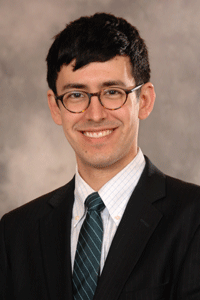
Redman was nominated in the outstanding magazine article category for “‘I Was Scared to Sleep’: LGBTQ Youth Face Violence Behind Bars,” a piece he wrote for The Nation about the dangers transgender youth face in the nation’s juvenile justice facilities.
Redman joins an impressive list of nominees, which includes The Kids Are All Right written and directed by Lisa Cholodenko, I Love You Phillip Morris, starring Jim Carrey and Ewan McGregor, Howl, starring James Franco, HBO’s acclaimed drama True Blood, Fox’s hit show Glee, ABC’s hit comedy Modern Family, and NBC’s hit sitcom 30 Rock.
In all, there are 114 nominees in 23 English-language categories, and 33 Spanish-language nominees in 9 categories.
Read Daniel Redman’s “‘I Was Scared to Sleep’: LGBTQ Youth Face Violence Behind Bars.”
Innovative Spanish-Language Radio Soap Addresses LGBTQ Acceptance and Equality in Latino Households
Proyecto Poderoso, the Family Acceptance Project, and Radio Bilingüe are proud to announce the on-air premiere of their radionovela series, a Spanish-language radio soap opera developed specifically to reach California’s Latino families with stories about lesbian, gay, bisexual, and transgender (LGBT) acceptance and equality.
The three-part series—called “Bienvenidos a Casa,” or “Welcome Home”—premiered February 11, 2011 on Radio Bilingüe’s “Rock-in da House”. The radionovela will air a total of 10 times from February 11 through March 31 across California’s eight Radio Bilingüe stations. It will also be available for anyone across the country to hear as a podcast on www.Radio Bilingüe.org.
The innovative radionovela—similar to radio soap operas popular during the Golden Age of Radio—is based on groundbreaking research from San Francisco State University’s Family Acceptance Project (FAP), which conducted the first comprehensive study of Latino LGBTQ adolescents, young adults, and families, including family dynamics and the impact of family acceptance and rejection.
The team used research findings and messages developed by FAP with Latino families with LGBTQ members to pinpoint the issues and create the storylines. Over the last three months, team leaders have also held several focus groups with LGBTQ Latinos and families to determine the best ways to address key social issues, with field direction provided by Jorge Sanchez, FAP’s Project Coordinator. Delia Saldivar, station manager for Radio Bilingüe KHDH, then used the research and focus group information to draft the series script, with input from FAP. The series weaves together pivotal social issues into storylines that have historically been difficult for traditional Latino families to discuss and address. This innovative evidence-based series is intended to help begin the dialogue in households by addressing crucial social and political issues, including bullying, coming out, and family acceptance.
In 2007, the National Center for LGBTQ Rights and California Rural Legal Assistance partnered to create Proyecto Poderoso—or Powerful Project—to provide legal assistance for low-income LGBTQ people in rural California.
Proyecto Poderoso leaders soon recognized a common issue faced by their clients—their clients couldn’t discuss the social struggles and pain they often faced as members of the LGBTQ community with their families.
The series was made possible through a grant awarded to Proyecto Poderoso from the Horizons Foundation. Proyecto Poderoso collaborated with the Family Acceptance Project and Radio Bilingüe to engage the state’s normally hard-to-reach Spanish-speakers by developing the radionovela.
Come Celebrate With Us at NCLR’s 34th Anniversary Celebration

Whether you’re celebrating 25 years together or looking for a first date, this is the night for you. Celebrate NCLR’s life- and law-changing work for justice and equality with 1,799 of your fellow lesbian, gay, bisexual, transgender, and allied friends.
It’s an event not to be missed. Become a sponsor or buy your tickets now!
Anniversary Dinner 5:30 p.m. to 8:30 p.m. Marriot Marquis 4th and Mission Streets, San Francisco Anniversary Party 8:00 p.m. to Midnight Metreon City View, 4th Floor 4th and Mission Streets, San FranciscoTickets and Sponsorship packages on sale now!
Get all the details about NCLR’s 34th Anniversary Celebration.
Join Us at Dinah Shore in April
Have we got a fabulous weekend of fun for you at Dinah Shore weekend in Palm Springs this year! Single? Twosome? Threesome? Foursome? There’s a game for everybody at the Dinah Shore weekend this year. And we’ve got big plans.
 Friday through Sunday, April 1-3
Palm Springs, California
Friday through Sunday, April 1-3
Palm Springs, California
Weekend events to benefit NCLR include:
- Happy Hour—Welcome Reception
- Dine Out for NCLR at Trio Restaurant
- Linashore Golf Classic
- Linashore Dinner | Dance
- Kraft Nabisco Challenge
NCLR Launches Photo Campaign to Reflect Our Community
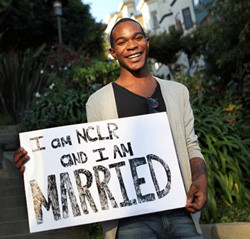
As we look ahead to a major milestone in 2012—NCLR’s 35th anniversary—we are launching the “I am NCLR…” photo campaign to reflect the members of our LGBTQ community and our allies.
Through March 31, 2012, we would like your photos—your portraits, snapshots and special moments—with a homemade poster or sign in which you fill in the sentence, “I am NCLR, and I am…” telling us how you reflect our groundbreaking work.
Learn how you can be a part of this great campaign, and show us how you are NCLR.
NCLR Staff and Board Updates
The National Center for LGBTQ Rights is proud to announce three new additions to our staff. This month, Amy Whelan joined as a senior staff attorney and will work on NCLR’s full range of casework. In January, Muna Hawatmeh joined as a legal assistant and Kari Kussmann joined as communications associate.
Before joining NCLR, Amy was an associate in the San Francisco firm of Rosen, Bien & Galvan LLP (RBG). There, she represented individuals, organizations, and classes of people in litigation before federal and state courts and administrative agencies, principally in the area of civil rights. In 2008 and 2009, Amy was a member of the trial team in Coleman/Plata v. Schwarzenegger, a combined lawsuit challenging the California prison system’s unconstitutional provision of medical and mental healthcare. A unanimous three-judge panel ruled in favor of the prisoners in that case and California’s appeal is currently pending before the U.S. Supreme Court. In addition to her work litigating class action prisoners’ civil rights cases, she worked on a wide variety of other matters at RBG, including First Amendment, police misconduct, jail suicide, and employment discrimination cases. She also successfully represented a federal employee in an administrative grievance proceeding who was denied healthcare benefits for her same-sex spouse.
She received her Bachelor’s Degree from Princeton University in 1996, and her Juris Doctorate from Northeastern University School of Law in 2001.
Kari Kussmann joined NCLR in January 2011 as a communications associate. Originally from Tacoma, WA, Kari attended Occidental College in Los Angeles, and graduated cum laude with a dual major in history and Spanish literature. While attending Occidental, Kari received three travel and research grants to further her study of women’s groups in Latin America, and was awarded honors with distinction on her history thesis: Eva Peron: A Feminist Populist.
Prior to NCLR, Kari worked as marketing assistant for Lonely Planet Publications and marketing coordinator for BlackRock Inc. She has been heavily involved with Team in Training, serving as Team Captain and raising funds for the Leukemia & Lymphoma Society. Kari is also an avid soccer player and volunteers as an assistant coach to a girls soccer team in Oakland, CA.
Muna Hawatme joined NCLR in January 2011 as a legal assistant. After earning her bachelor’s degree in Criminal Justice from University of Phoenix, she obtained her paralegal certificate from the University of California at Irvine. Prior to joining NCLR Muna interned at the Orange County District Attorney’s office in the Gang Unit division.
Welcome New Board Members
NCLR welcomes two new members to its governing Board of Directors. Attorneys Tamika Butler and Elizabeth Deeley joined the board in late 2010, and will serve for two three-year terms.
Butler joined the Legal Aid Society-Employment Law Center (LASELC) in 2009 as a Skadden Fellow in the Racial Equality Program. She advises workers of their employment rights, with a primary focus on helping members of the African-American communities of the Bay Area. Tamika also provides community outreach and education regarding the general rights of employees. She received her J.D. in 2009 from Stanford Law School, and her B.A. in Psychology and B.S. in Sociology with a specialization in Criminal Justice from Creighton University in Omaha, Nebraska in 2006.
Deeley is a litigation partner at Kirkland & Ellis LLP’s San Francisco office. She has a wide-ranging, complex commercial litigation practice, and has handled a variety of matters including contract, fraud, and other business tort disputes; consumer and investor class actions involving unfair business practices, antitrust, securities, fraud, and consumer protection issues; and employment discrimination and civil rights lawsuits.
Support Justice and Equality in 2011
Start off 2011 on the right path by supporting the fight for justice and equality for all lesbian, gay, bisexual, and transgender people and families with an NCLR membership of $40 or more! You’ll receive many benefits, including:
NCLR Justice Sticker
- justice sticker
- Semi-annual NCLR newsletters and monthly legal updates through our e-newsletters
- Action Alerts so you can take action on the issues that matter most to you
- Access to members-only live web chats with NCLR attorneys so you can ask the questions that matter to you
- Advance notice when new or updated legal publications are available
- Invitations to NCLR events throughout the country
- Opportunities to get involved with NCLR directly
Knowing you are part of the fight for equality and civil and human rights for all lesbian, gay, bisexual, and transgender people and families in the U.S.
Support NCLR through eScrip

How about using eScrip?
What is eScrip? It’s a simple way for you to support NCLR at no cost to you. All you have to do is register your credit/debit cards and ATM cards with eScrip—then any time you use one of them to shop with a participating merchant, the merchant will donate up to 8% of the purchase amount to NCLR. That’s right: you pay for only what you’re buying, and the store is the one who donates. Perfect!
NCLR’s Group Name: “National Center for LGBTQ Rights” or “NCLR”
NCLR’s Group ID #: 500022336
Over 150 merchants at which you already shop participate, including Whole Foods, Wild Oats, Andronico’s, Mollie Stone’s, Bristol Farms, Working Assets, Sharper Image, Round Table Pizza, Chevron, OfficeMax, Budget Rent-A-Car, Payless Shoes, Orchard Supply Hardware, and many more. Check out the full list of participating merchants.
Register with eScrip online now! Under “Make a difference in 4 easy steps,” click on “Sign up, it’s free!” Your credit card information will only be used for this purpose and is guaranteed to be safe and secure.
Shop at NCLR’s Store


